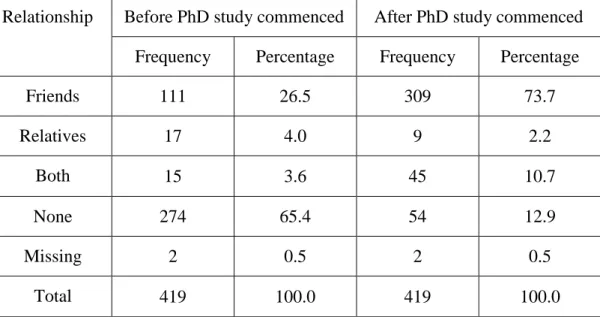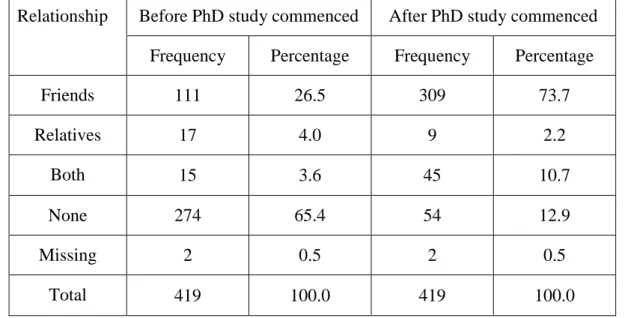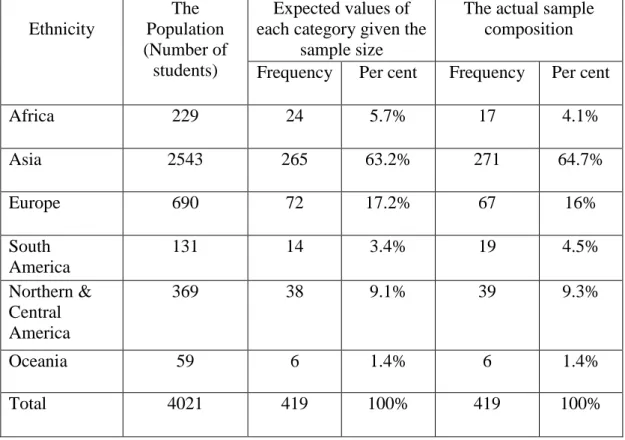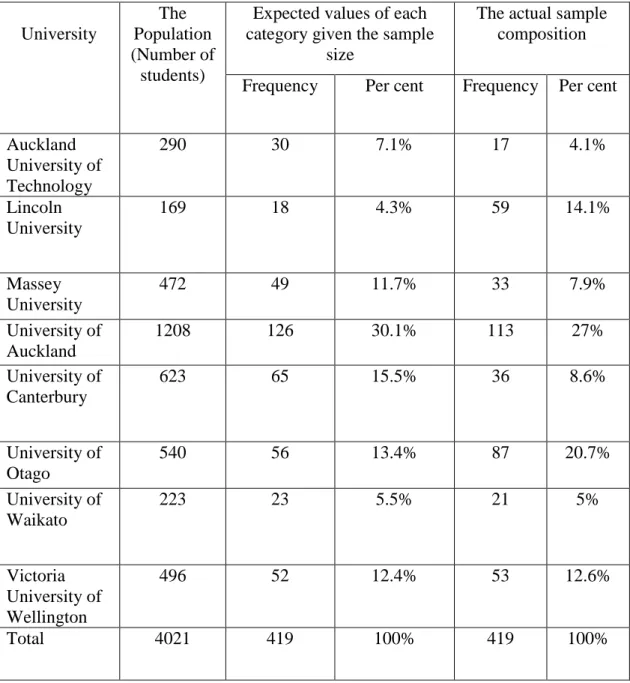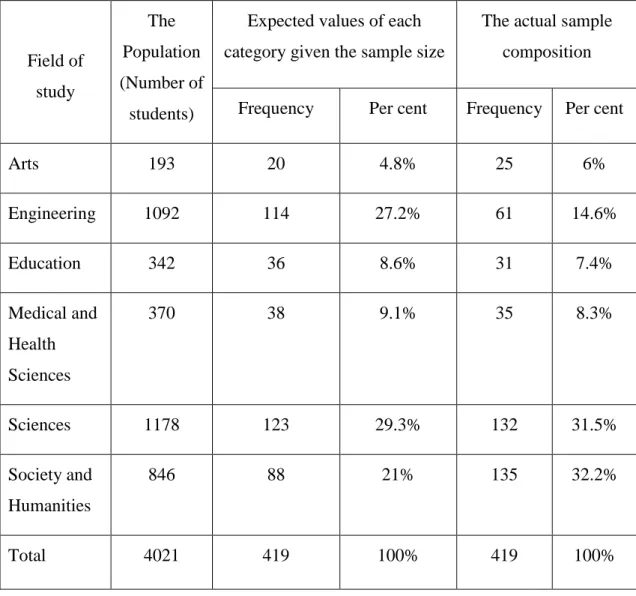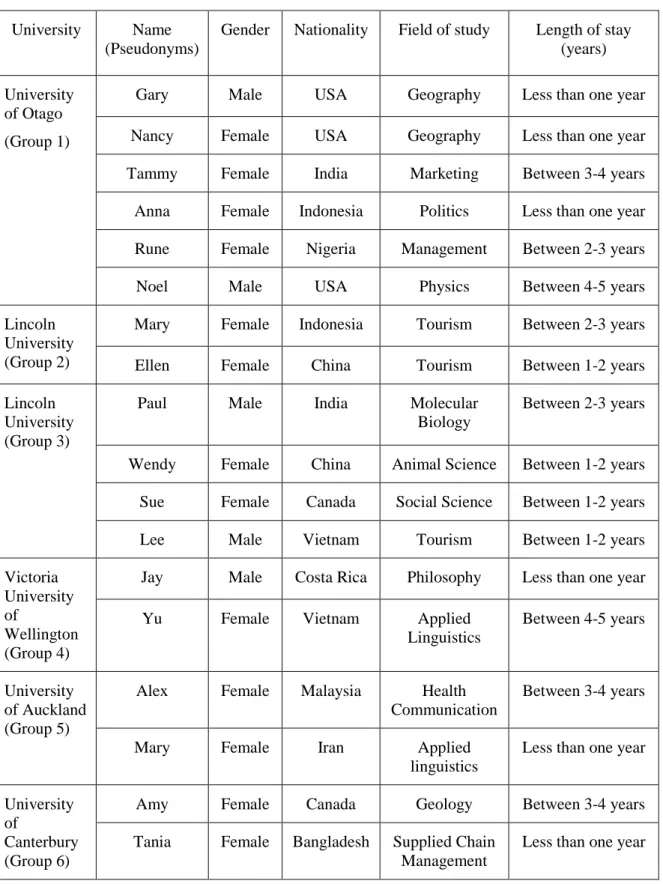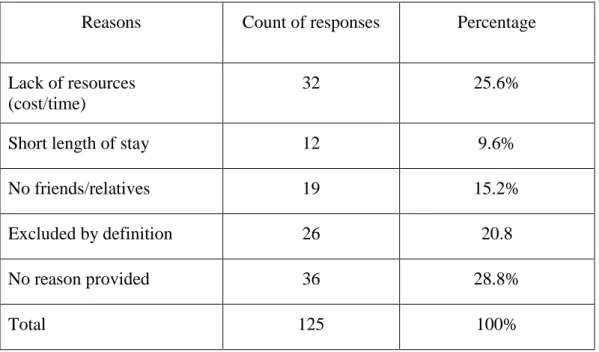Focus group participants included international PhD students enrolled in New Zealand universities who had some VFR tourism experiences after starting their PhD studies. Altogether, this thesis contributes to the understanding of the phenomenon of VFR tourism by international PhD students.
Thesis Introduction
- Chapter Introduction
- Background
- Export Education in New Zealand
- Research Questions
- Structure of the Thesis
Discussion of the adaptation of international students in the host country also increasingly takes into account the development of technology and social media and their role in helping or hindering adaptation processes (Forbush & Foucault-Welles, 2016; Rui & Wang, 2015 Sandel, 2014). What is the effect of international doctoral students' participation in domestic VF tourism on their socio-cultural adjustment in New Zealand.
Literature Review
Chapter Introduction
VFR Tourism and Relevant Concepts
- Migration as a facilitator of VFR tourism
- Defining VFR tourism
- Categorisations of VFR tourism
- The significance of VFR tourism
This uncertainty causes confusion about the scale of VFR tourism and the respect it deserves. Therefore, the economic contribution of VFR tourism is not only created by VFR tourists, but also.
Host–Guest Relationship in VFR Tourism
- Hosts and guests in tourism: Then and now
- Concepts of hosts and guests in VFR tourism
- The VFR host–guest relationship
The host-guest relationship in VFR tourism is a sophisticated phenomenon that is expressed in various ways. The idea of VFR tourism in a third place, as well as the host-guest relationship involved, therefore deserves more investigation.
International Students and VFR Tourism
- Definitions of international students
- Common travel characteristics of international students
- VFR tourism of international students
- Adaptation of international students in the host country
In an international context, international students in Umea (Sweden) took the opportunity to travel around Europe while studying in the country (Pawlak, 2013). In addition, Pawlak (2013) highlighted how time constraints, authority constraints (visa issues), and available tourist facilities (transportation) can affect international students' travel.
Chapter summary
By examining international doctoral students' experiences with VF tourism and its impact on their sociocultural adjustment, the current dissertation may also contribute to the understanding of the triple link between VFR tourism, social networks, and the adjustment of international students in general.
Research Methods
Chapter Introduction
Therefore, the temporary inflexibility resulting from scheduled courses is less applicable to international PhD students in New Zealand. Regarding the size of this cohort, statistics show that there were approximately 4,021 international PhD students in New Zealand in 2016, an increase of 9.5% compared to 2015 (Education New Zealand, 2017a)1.
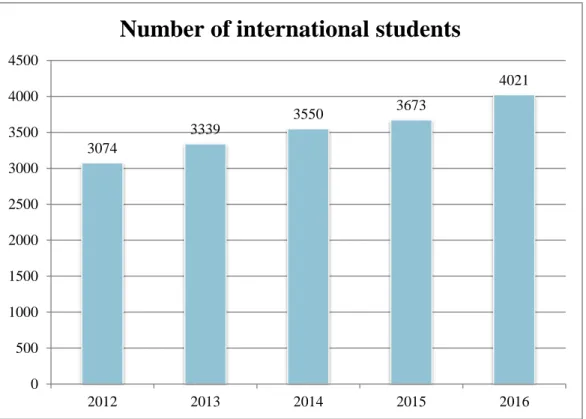
Research Paradigm and Ethics
- Research paradigm
- Research ethics
- Quantitative: Structured online survey
- Qualitative: Focus group interviews
One of the main objectives of this study is to examine the VFR tourism behavior of international PhD students in New Zealand. In the third part of the questionnaire, participants' VFR tourism experiences during their studies in New Zealand were examined.
Data Collection
- The online survey
- The focus groups
Third, all doctoral students whose e-mail addresses were publicly available on university websites were also invited to participate in the online survey directly by e-mail by the researcher. So, in the invitation email sent to them, the researcher clearly stated that the survey was designed for international PhD students, and apologized for any inconvenience caused to the local doctoral students. Consequently, the researcher decided to include these seven responses in the group of respondents who had no VFR experience.
Finally, Microsoft Outlook invitations were sent to the students so that they could have the event in their email calendars and the researcher could have a record of who accepted the invitation. However, since there were very few of them at each of these universities, the researcher decided not to conduct focus group discussions at these sites.
Data Analysis
- Quantitative data
- Qualitative data
- Sequence of analysis
On the day of the focus group discussions, however, some students did not show up. The second data set was used for most analyzes related to respondents' VFR experiences. Further details are explained in the following chapters, which present the results of the study.
Where possible, full quotes from focus group discussions were used to support or challenge the results of the online survey. The focus of the present study is on the VFR tourism experiences of international doctoral students.
Research Merits, Challenges and Limitations
- Research strengths and merits
- Challenges and limitations
Another possibility is that international PhD students are not very familiar with the mentioned channels (postgraduate newsletters, Facebook pages and blogs), or that they were simply not interested in such channels. Moreover, since the students were approached in different ways, this may have had an impact on the consistency of the answers received. That is, each recruitment method might have targeted a different segment of the population than others.
For example, not many participants were involved in third-place VFR tourism (identified in the survey), and therefore could not contribute to some of the questions that aimed to explore this phenomenon in depth. These are some common disadvantages of the focus group method mentioned in the literature (Acocella, 2012).
Research Participants’ Characteristics and VFR Tourism Behaviour
Chapter Introduction
Research Sample Characteristics
- The online survey research participants
- The focus groups
Regarding length of stay, respondents were asked to state the total number of months they had been in New Zealand (including all previous and current stays for any purpose). This outcome is consistent with the finding that more than 50% of respondents had been in New Zealand for less than two years. Responses indicated that 46.9% (n=144) of respondents had previous overseas study experience, either in New Zealand or other countries.
After their arrival in New Zealand for doctoral study, the number of respondents who had ties to the country increased to 86.6%. The number of international PhD students in New Zealand has increased steadily in recent years, as illustrated in Figure 3.1.
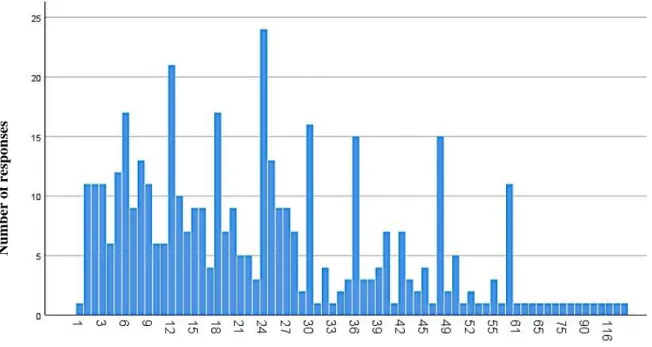
Involvement in VFR Tourism of International PhD Students
- Overall statistical frequency of students participating in VFR tourism
- Reasons for no involvement in VFR tourism
- Factors that inhibit participation in VFR tourism
Otherwise, they were included in the group of those who participated in VFR tourism. Of the online survey respondents, those who had no VFR tourism experience were asked to provide their reasons for not engaging in VFR tourism. This means that 13.4% of the respondents (n=56) had connections in New Zealand (either friends or relatives, or both), but did not participate in VFR tourism.
Further discussion of the factors that may inhibit student participation in VFR tourism is presented in the following section. As a result, students in this position might have felt more motivated to engage in VFR tourism.
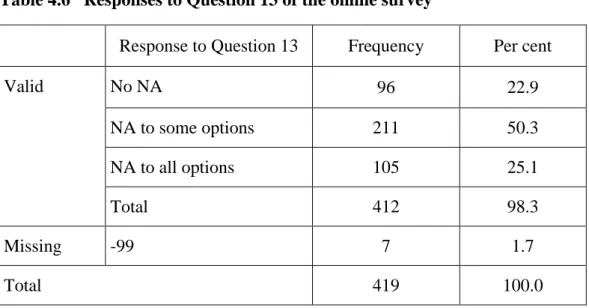
VFR Tourism Behaviour of International PhD Students
- Participation in VFR tourism
- VF travel patterns
- VFR travel frequency over the years of study
- Timing of VFR travel
- Activities undertaken during VFR trips
- Types of Accommodation
In addition to the activities mentioned in the questionnaire, respondents also mentioned a number of other activities they participated in when they traveled to visit their friends and family. The preference to participate in activities with (rather than without) friends and relatives when traveling to visit them was also reflected in the focus group discussions. The desire to visit attractions with close friends and relatives has also been reported in the literature.
In the online survey, respondents were asked to indicate the type of accommodation they usually used when traveling to visit friends and family. Several factors that discouraged participants from staying with friends and family were also discussed in the focus groups.
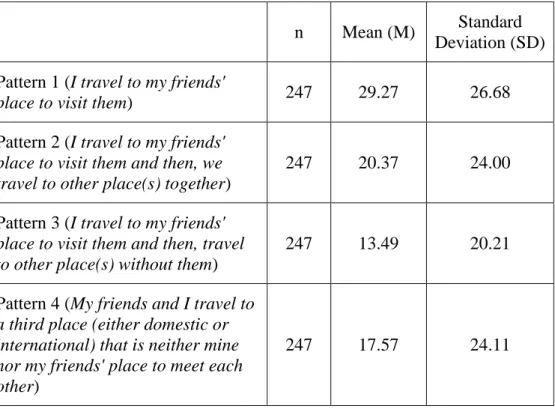
VFR Tourism in Non-traditional Places
- VFR tourism in a third place
- VFR tourism in transit
Focus group discussions revealed that third place VFR tourism can be domestic, international, or a combination of both. Thirdly, there are several advantages and disadvantages of VFR tourism that were discussed in the focus groups. For some, third-place VFR tourism was the only way to visit their friends and family.
In addition to the benefits discussed above, there were also some disadvantages to VFR tourism in the third country mentioned. Overall, third country VFR tourism raised a mix of advantages and disadvantages from research participants.
Intention for Return Visits
Conversely, some participants might be discouraged from undertaking third-place VFR tourism because of perceived unfamiliarity with the destination and the effort involved in planning such trips. With increasing global mobility, these understudied forms of VFR tourism could be expected to grow. They challenge current definitions of VFR tourism and call for further research that examines them more thoroughly, and how they fit into the wider phenomenon of VFR tourism.
The pull factors of the destination, in this case, are important, as they contribute to the motivation for return visits of the students. Return VFR visits of the students to the study destination represent an important aspect associated with the economic contribution of the students' VFR tourism.
Chapter Summary
Host–guest Relationship in VFR Tourism and Sociocultural
Chapter Introduction
International PhD Students as VFR Guests
- The concept of VFR guests
- The experience of being VFR guests
- Factors that influence VFR guesting experiences
Seeing friends and family, and/or staying with them, is what differentiates VFR guests from conventional tourists. This study therefore argues that the term 'VFR guests' is different from 'VFR travellers' and 'VFR tourists'. These outcomes show that the international PhD students in this study had positive (or higher) experiences as VFR guests.
A third factor that was thought to influence how international PhD students felt or behaved as VFR guests was the situation at the destination where friends and relatives reside. A number of factors that could influence the experience of international PhD students as guests of VFR were also identified.
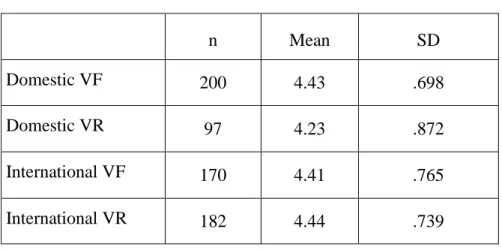
International PhD Students as VFR Hosts
- The concept of VFR hosts
- The experience of being VFR hosts
- Factors influencing hosting experiences
- Hosting friends and hosting relatives
Also, rating scores were higher in the case of host families than in host friends. In other words, the probability of offering accommodation was similar between host friends and host family. The perceived existence of problems when hosting friends and relatives may be associated with the demographic characteristics of the respondents.
Also, the rating of pre-stated hosting issues was higher when hosting relatives than when hosting friends. Another difference between hosting friends and hosting relatives is the chance to participate in activities with the guests.
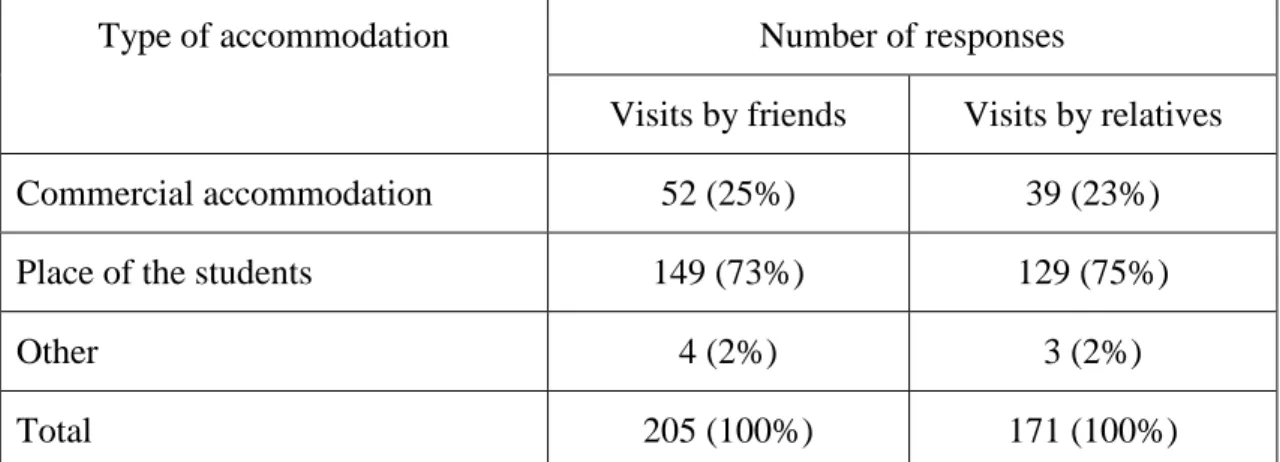
Domestic VF Tourism and Sociocultural Adaptation
- Sociocultural adaptation of international PhD students in New Zealand . 163
While the online survey examined the benefits of traveling to visit friends in New Zealand, the focus groups focused on the impact of hosting on the students' socio-cultural adjustment. In this study, network enhancement was highly rated as one of the benefits of traveling to visit friends in New Zealand. Similarly, in the online survey, respondent R236 listed a better mood as one of the benefits of traveling to visit friends (Table 5.11).
In the online survey, respondent R29 mentioned the opportunity to visit tourist spots as one of the benefits when traveling to visit non-local friends. Based on the cumulative effect of all the impacts of domestic FF tourism on international PhD students' sociocultural adjustment discussed in this study (the development and improvement of social networks, increased local knowledge, improved language skills, and better mental health and well-being) , it can be argued that domestic FF tourism experience can also contribute to the students'.
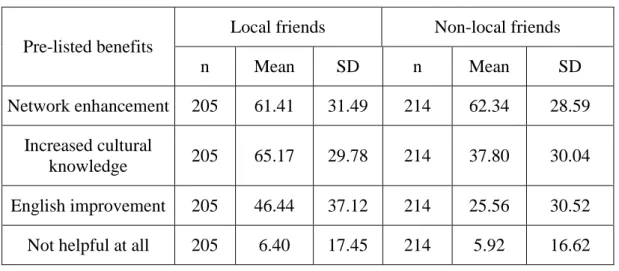
Chapter Summary
Feeling at home was associated with being comfortable and relaxed in the surrounding environment, which in turn could reduce stress. Therefore, a sense of belonging or sense of home enhanced by domestic VF tourism is arguably important for students' sociocultural adjustment by reducing stress and improving their emotional state. They include the development and improvement of social networks, improved mental health and well-being, increased local knowledge, language skills and the feeling of being at home in the host country.
Where relevant, links have been made to show how these themes can help to overcome the challenges of their adaptation in New Zealand. Further discussion of this interrelationship and how the results of the current study answer the research questions is presented in the next chapter.
Discussion – VFR Tourism Behaviour, Host–Guest Relationship, and
- Chapter Introduction
- Understanding VFR Behaviour of International PhD Students
- The Dynamics of Hosts and Guests in VFR Tourism
- Adapting through VFR tourism
- An integrative framework
- Food for Thought
- Chapter Summary
This study found a number of distinguishing features of the VFR tourism behavior of international PhD students. The role of family status in VFR tourism of international PhD students is worth further investigation. The complexity of the host-guest relationship in VFR tourism was described in the literature review.
In addition, the peculiarity of the host-guest relationship in VFR tourism is described for the third time. The level of host-guest interaction in VFR tourism of international doctoral students is relatively high.
Conclusion and Recommendations
Chapter Introduction
Conclusion on key findings
- VFR tourism behaviour of international PhD students
- VFR host–guest relationship of international PhD students
- The impact of domestic VF tourism on sociocultural adaptation
Implications and Recommendations
- Implications of the study
- Avenues for future research
Chapter Summary
The online structured survey
Indicative Questions for Focus Group Discussions
Email Sent to University Representatives (for distribution of the link to
Research Advert Published on Newsletters, Forums
Information Sheet for Focus Group Participants
Consent Form for Focus Group Participants
Focus Group Participant’s Note
Undertaken Activities With and Without Friends by Types of VF Travel
Undertaken Activities With and Without Relatives by Types of VR
